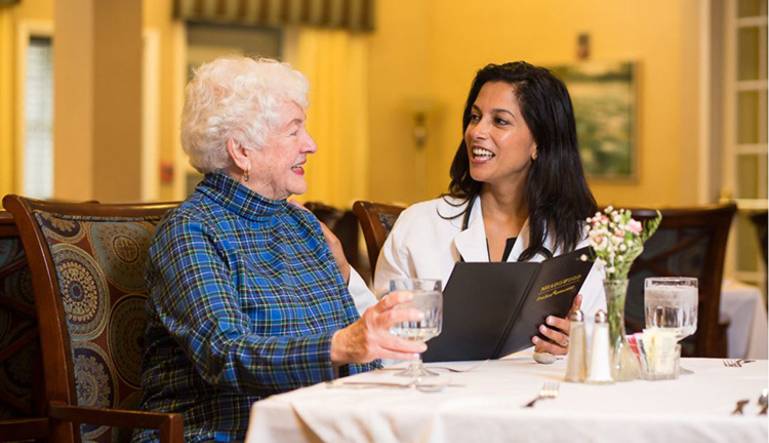With the hustle and bustle of the holidays rapidly approaching, many of us may feel as if we can’t remember anything. For older adults, problems with memory can be especially worrisome. Some leap to the conclusion that they have Alzheimer’s.
Is your memory loss or that of a senior family member related to normal aging and stress—or is it an early symptom of Alzheimer’s disease?
Conversely, sometimes the fear or embarrassment of forgetting things can causes older adults to hide memory problems from loved ones.
November 18 marks National Memory Screening Day. It is the perfect time to get your symptoms—or those of an aging loved one—checked out.
Recognizing Memory Lapses
Memory lapses occur in a number of ways. Perhaps you enter a room and forget what you went in there for. Maybe you lose your keys. Or you go to the grocery store to pick up milk and come out with three bags of groceries—but no milk.
In most cases, these are normal memory lapses. But it’s important to know how to understand the difference.
Is It Alzheimer’s… Or Not?
One difference is whether or not you remember forgotten things later in the day or week. If, for example, you remember later in the day that you missed an appointment or if you can re-trace your steps to find your keys—your memory lapse is probably not an early symptom of Alzheimer’s. Here are 5 medical conditions often mistaken for Alzheimer’s.
However, memory loss that disrupts your daily life or causes you to forget how to do everyday tasks you’ve performed a million times could be cause for concern, says the Alzheimer’s Association.
Causes of Memory Lapses
Memory lapses can be caused by Alzheimer’s or dementia, but may also be caused by stress, prescription drugs, or the normal aging process.
“At this time, there are types of memory problems that can be cured and other types that can be treated,” says J. Wesson Ashford, M.D., Ph.D. and Chair of the Alzheimer’s Foundation Association Memory Screening Advisory Board. “The key is to recognize the problem, get screened and act on the results.”
A memory screening could be the first step to identifying the cause of memory loss in yourself or a senior loved one.
Where to Get a Memory Screening
In honor of Memory Screening Day, the Alzheimer’s Foundation Association offers a variety of locations where you or a loved one can get a memory screening by qualified healthcare professionals.
It’s important to note that a memory screening does not diagnose any particular illness and does not replace a consultation with a physician.
What Takes Place During a Memory Screening
A memory screening may be conducted by a medical professional such as a social worker, pharmacist, physician’s assistant, nurse practitioner, psychologist or physician.
The screening is private and typically consists of a series of questions and tasks.
These tasks test:
- Memory
- Language skills
- Thinking ability
The tests used have been shown to be 80 to 90 percent accurate. The person administering the test will recommend follow up with a physician if the screening shows memory problems.
If you or a loved one shows any sign of memory loss, now is a good time to take advantage of a free memory screening.
Caring for Those with Alzheimer’s
If you or a loved one has been diagnosed with Alzheimer’s or dementia, Five Star Senior Living provides memory care services focus on maintaining quality of life. Find a senior living memory care community nearest you to learn more today!

